The WWF is run at a local level by the following offices...
- WWF Global
- Adria
- Argentina
- Armenia
- AsiaPacific
- Australia
- Austria
- Azerbaijan
- Belgium
- Bhutan
- Bolivia
- Borneo
- Brazil
- Bulgaria
- Cambodia
- Cameroon
- Canada
- Caucasus
- Central African Republic
- Central America
- Chile
- China
- Colombia
- Croatia
- Democratic Republic of the Congo
- Denmark
- Ecuador
- European Policy Office
- Finland
'The Amazing Bee Trip; the Importance of Pollinators' workshop at Sustainable Brands 2020
27 February 2020
23rd February 2020, Agricultural Occupation Promotion and Development Center Chanthaburi Provincial (Bee Centre Chanthaburi), Chanthaburi province, Thailand
As part of Sustainable Brands 2020 event, WWF- Thailand joined forces with Biothai, Go Organics, Heinrich Böll Stiftung Southeast Asia, Earth Net Foundation, and Thai Pesticide Alerts, to host a workshop on “The importance of pollinators for sustainable food production,” promoting pollinator restoration in nature and within the value chain.
The event comprised of honey testing, bee wax soap making, beekeeping techniques, informative talks, and a brainstorming session on how each sector can take an active and important role in pollinator restoration both with value chains (that may supply their materials) and by transforming spaces they manage (such as farms, campuses, factories, gardens) into pollinator-friendly gardens where they can integrate native beekeeping. Local wisdom, good practices, and issues were also exchanged and shared.
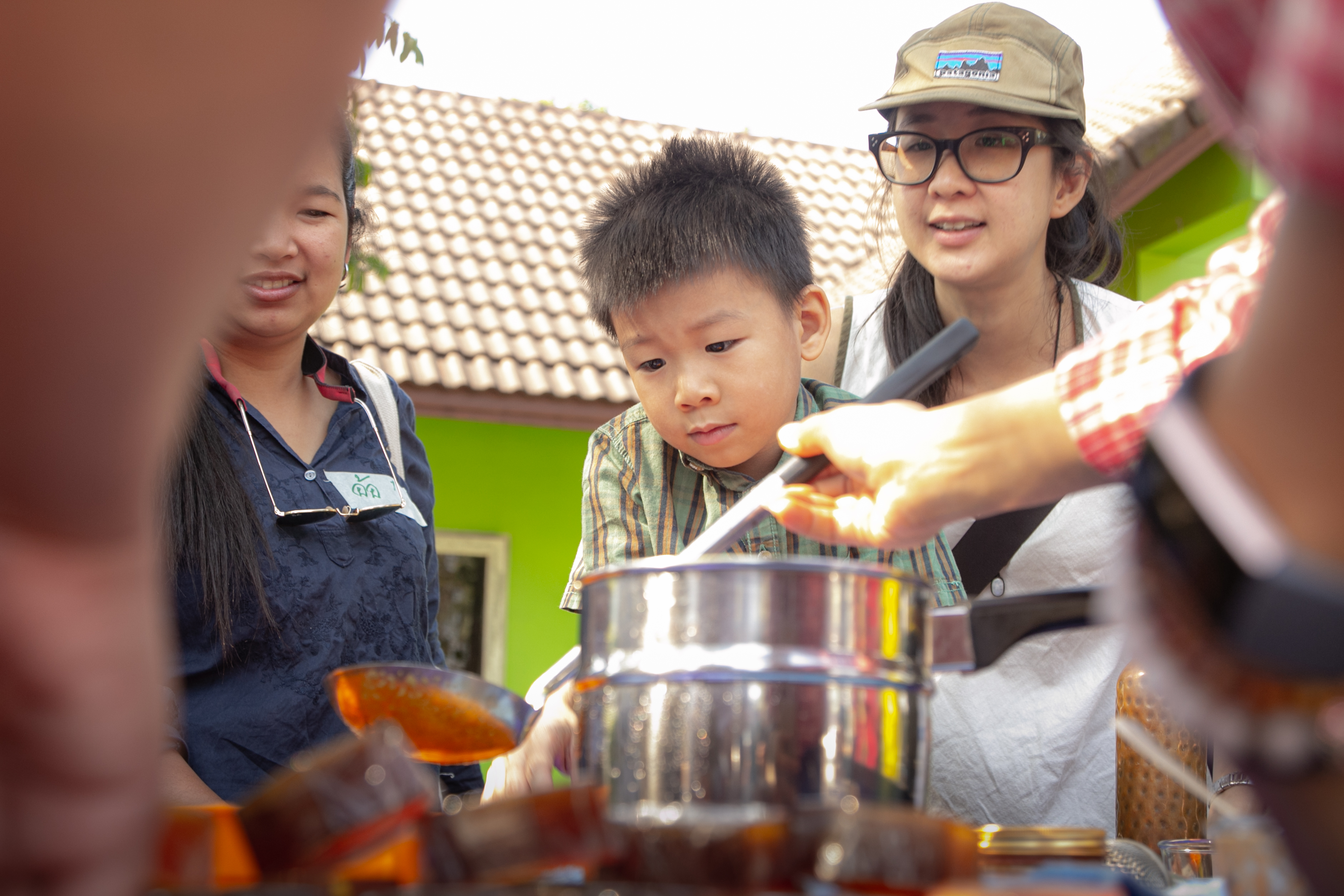
The event was attended by nearly 50 individuals from diverse sectors, including government, civil societies, farmers, social enterprises, businesses, NGOs, and consumers.
“Without pollinators, the human race and the ecosystem cannot survive. More than 80% of plants depend on pollinators to propagate. The decline of pollinator populations is leading to drastic impacts on biodiversity and food security. Consumers need to make better informed choices and purchase only products that are friendly to pollinators. We all need to come together to protect the pollinators,” said Ply Pirom, Sustainable Consumption and Production Manager at WWF-Thailand.
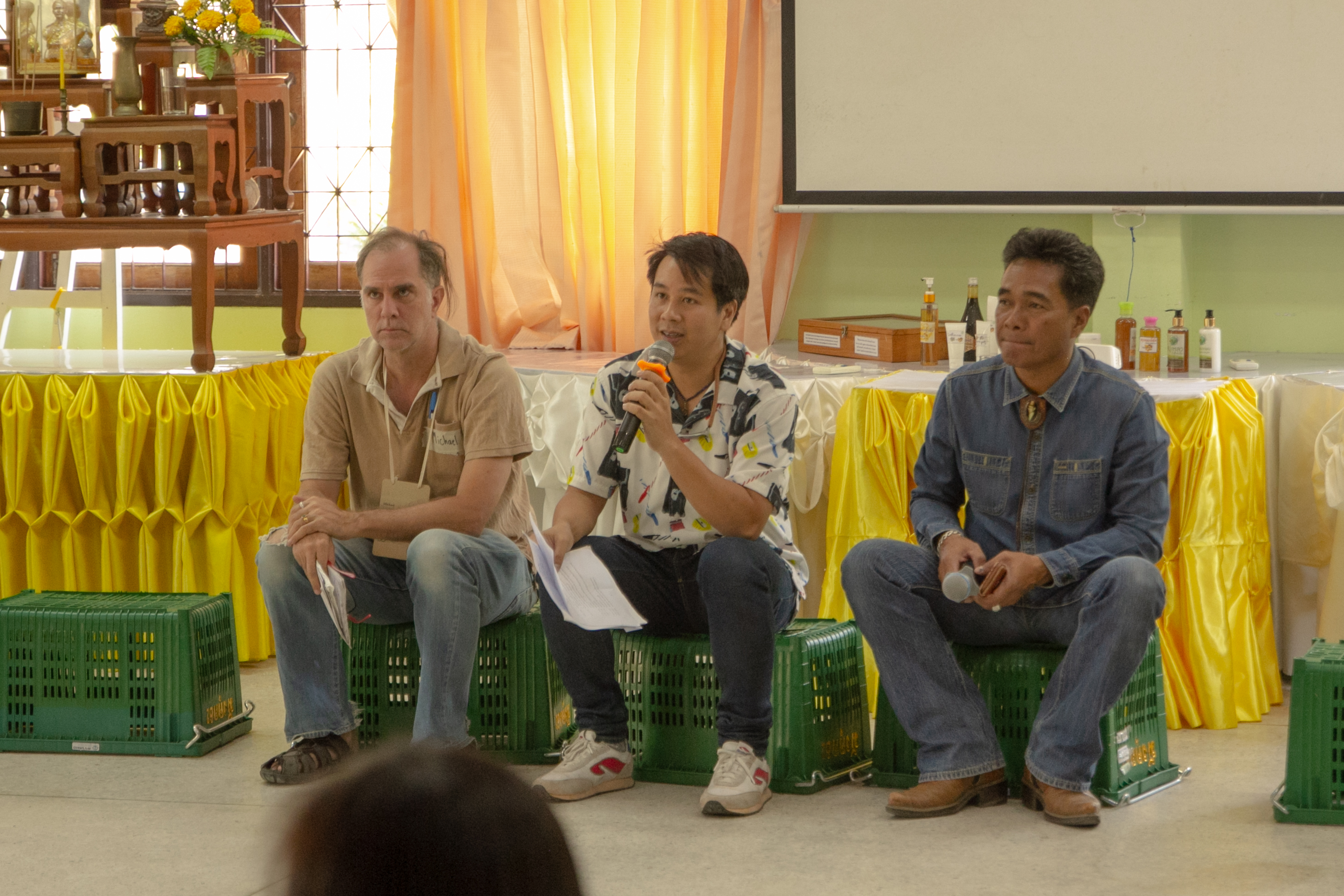
“At home, up the mountain, I have witnessed that pollinators are declining rapidly. Loss of habitat, as a result of land conversion and deforestation, is the principal reason, followed by unsustainable agricultural practices. Pollinators play a crucial role in the push towards sustainable agriculture. After seeing the benefits to their yield pollinators can bring, smallholders who participate in beekeeping practices will tend to shift away from the use of agrichemicals.” said Chaitawat Chomti Huay Hin Lad Nai villager, and a forest beekeeping expert.

“Organic agriculture needs bees,” said Chayutkrid Nonthakeaw Founder of the Bee Centre in his opening remarks. “In the 36 years that this centre has been in operation, we have always promoted the motto “conserve bees, don’t catch, don’t burn, don’t destroy. A strong network starts from individuals taking real action.”
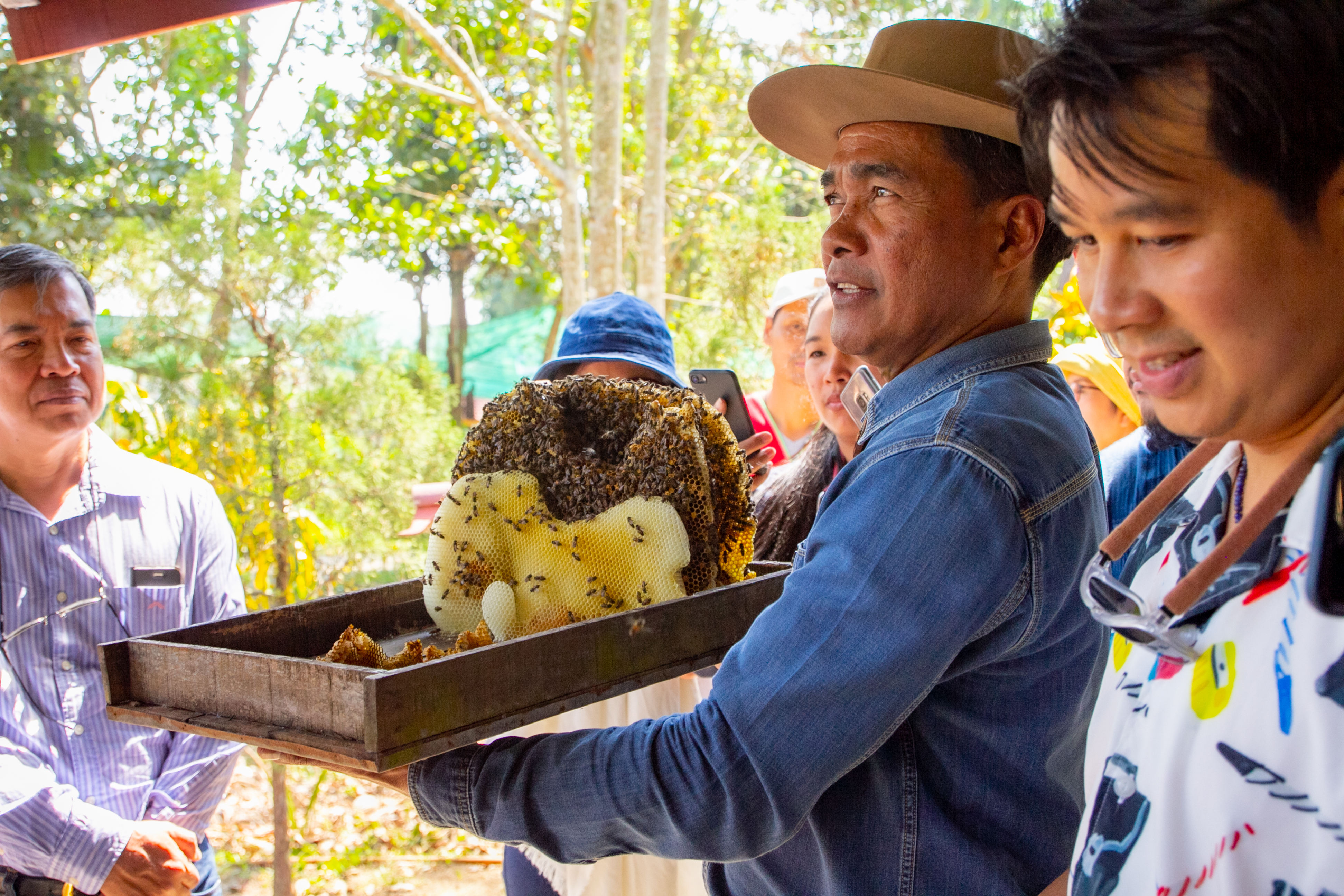
The talks were by led expert speakers who presented on pollinator issues, including urban beekeeping and honey harvesting techniques. To further raise awareness, guests participated in a brainstorming session. They interacted with and asked questions of the experts and while sharing their own thoughts on the role humans play in maintaining biodiversity. Topics also covered ranged from the benefits of bees to people & the planet and how consumers and brands can support pollinators, to the ecosystems of organic farms and harmonious living with pollinators.

“In the past 3 decades, global pollinators populations have declined by 70 per cent, and our future food system will be in crisis if this continues. If we come together as consumers, farmers, and businesses to learn and act we can to restore pollinator populations. This is the key towards a sustainable food system” said Michael Commons, pollinator expert from the Earth Net Foundation.
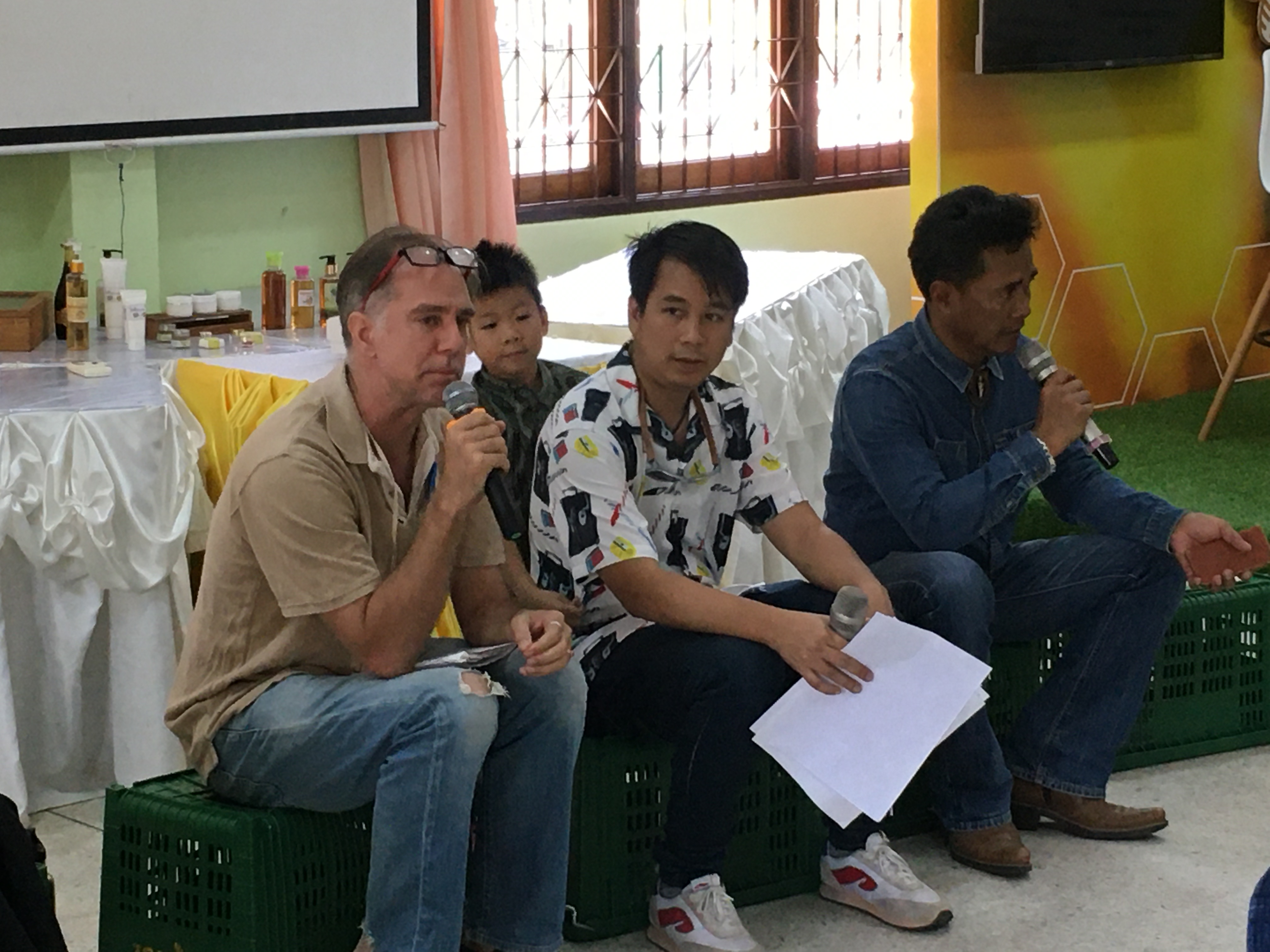
The workshop ended at “Sutee Organic Farm”, a farm with high biodiversity growing a range of plants. Guests were given the opportunity to interact with experts there and learn more about the harmony between pollinators and plants.
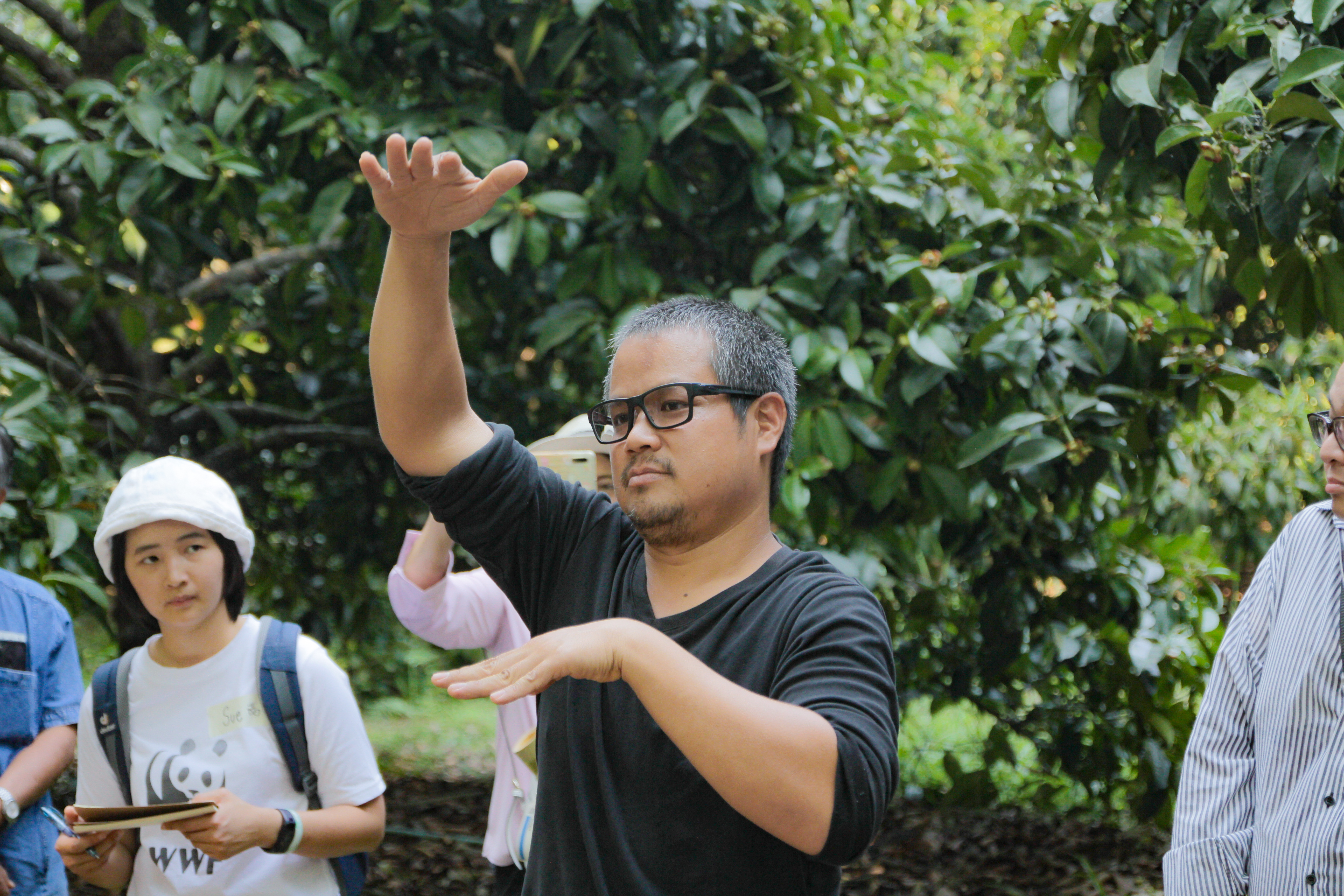
At the end, guests had the option to bring home stingless bee box/hive back to Bangkok to maintain their own urban beekeeping project to play their part in maintaining urban pollinator populations.
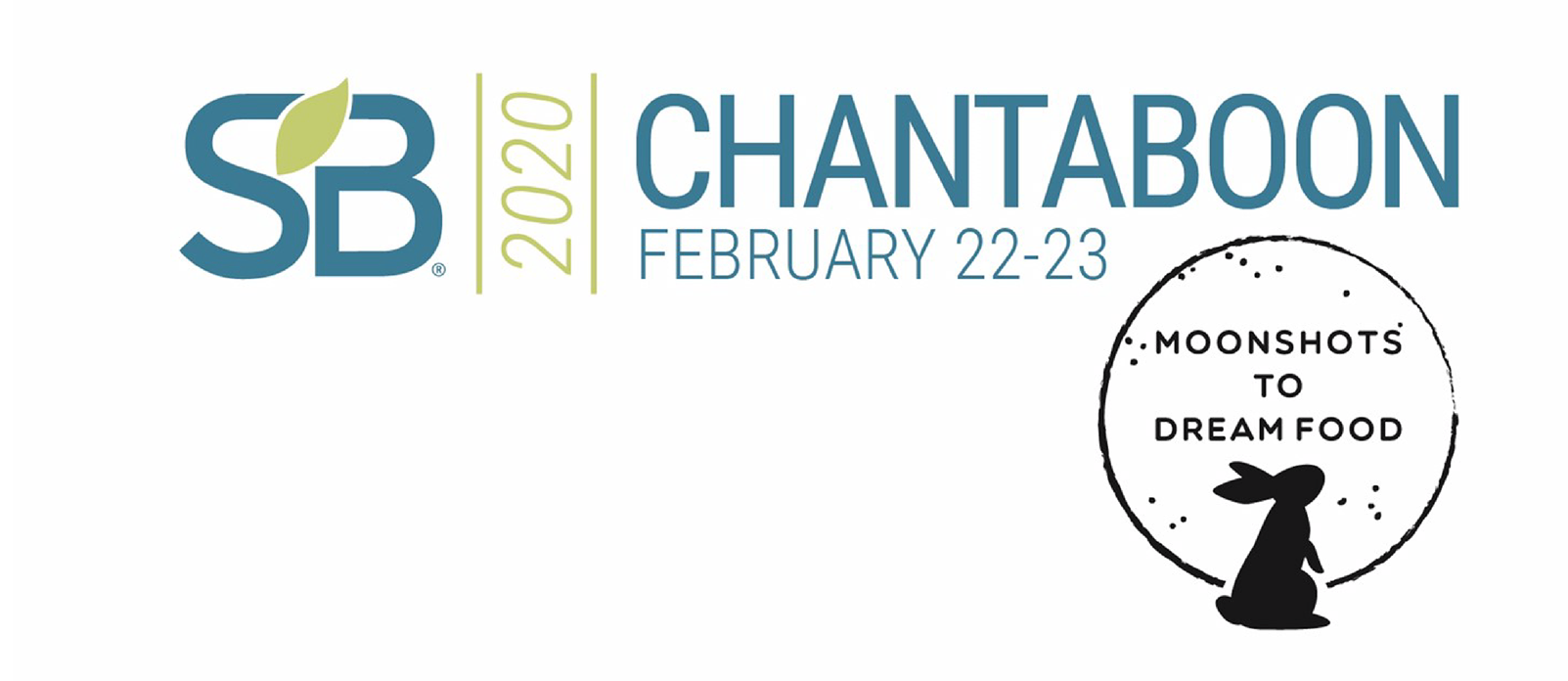
The brochure handed out at the event can be downloaded here.
As part of Sustainable Brands 2020 event, WWF- Thailand joined forces with Biothai, Go Organics, Heinrich Böll Stiftung Southeast Asia, Earth Net Foundation, and Thai Pesticide Alerts, to host a workshop on “The importance of pollinators for sustainable food production,” promoting pollinator restoration in nature and within the value chain.
The event comprised of honey testing, bee wax soap making, beekeeping techniques, informative talks, and a brainstorming session on how each sector can take an active and important role in pollinator restoration both with value chains (that may supply their materials) and by transforming spaces they manage (such as farms, campuses, factories, gardens) into pollinator-friendly gardens where they can integrate native beekeeping. Local wisdom, good practices, and issues were also exchanged and shared.

The event was attended by nearly 50 individuals from diverse sectors, including government, civil societies, farmers, social enterprises, businesses, NGOs, and consumers.
“Without pollinators, the human race and the ecosystem cannot survive. More than 80% of plants depend on pollinators to propagate. The decline of pollinator populations is leading to drastic impacts on biodiversity and food security. Consumers need to make better informed choices and purchase only products that are friendly to pollinators. We all need to come together to protect the pollinators,” said Ply Pirom, Sustainable Consumption and Production Manager at WWF-Thailand.

“At home, up the mountain, I have witnessed that pollinators are declining rapidly. Loss of habitat, as a result of land conversion and deforestation, is the principal reason, followed by unsustainable agricultural practices. Pollinators play a crucial role in the push towards sustainable agriculture. After seeing the benefits to their yield pollinators can bring, smallholders who participate in beekeeping practices will tend to shift away from the use of agrichemicals.” said Chaitawat Chomti Huay Hin Lad Nai villager, and a forest beekeeping expert.

“Organic agriculture needs bees,” said Chayutkrid Nonthakeaw Founder of the Bee Centre in his opening remarks. “In the 36 years that this centre has been in operation, we have always promoted the motto “conserve bees, don’t catch, don’t burn, don’t destroy. A strong network starts from individuals taking real action.”

The talks were by led expert speakers who presented on pollinator issues, including urban beekeeping and honey harvesting techniques. To further raise awareness, guests participated in a brainstorming session. They interacted with and asked questions of the experts and while sharing their own thoughts on the role humans play in maintaining biodiversity. Topics also covered ranged from the benefits of bees to people & the planet and how consumers and brands can support pollinators, to the ecosystems of organic farms and harmonious living with pollinators.

“In the past 3 decades, global pollinators populations have declined by 70 per cent, and our future food system will be in crisis if this continues. If we come together as consumers, farmers, and businesses to learn and act we can to restore pollinator populations. This is the key towards a sustainable food system” said Michael Commons, pollinator expert from the Earth Net Foundation.

The workshop ended at “Sutee Organic Farm”, a farm with high biodiversity growing a range of plants. Guests were given the opportunity to interact with experts there and learn more about the harmony between pollinators and plants.

At the end, guests had the option to bring home stingless bee box/hive back to Bangkok to maintain their own urban beekeeping project to play their part in maintaining urban pollinator populations.

The brochure handed out at the event can be downloaded here.